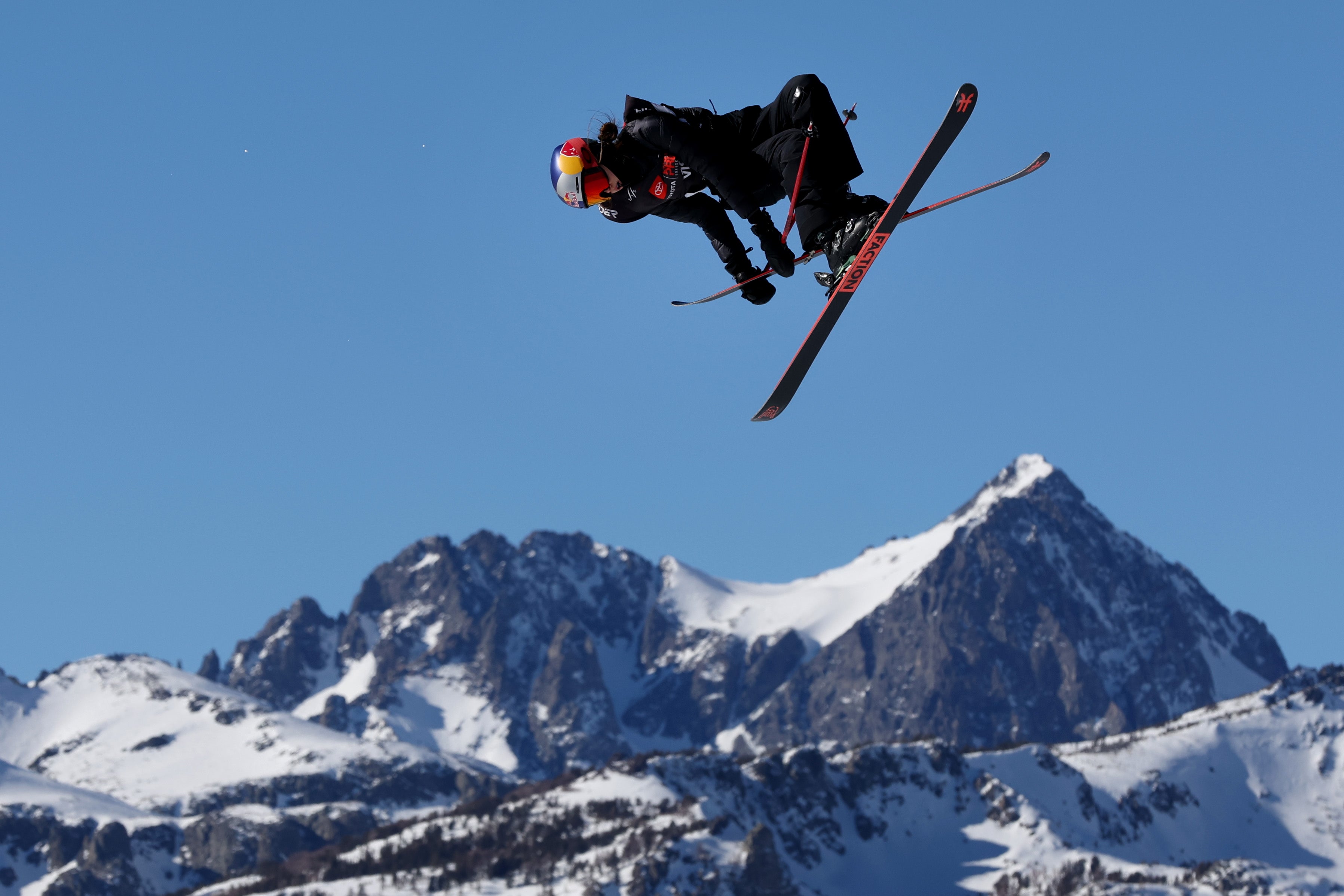
She is the California-born freestyle skiing superstar who is set to take the Winter Olympics by storm.
Eileen Gu, 18, is a favorite to win gold at Beijing in all three of the sport’s main events: the big air, slopestyle and halfpipe.
But the San Francisco native, who has a Chinese mother and American father, will try and secure Olympic titles for China, instead of Team USA.
Gu, who was raised by her mother and maternal grandmother and learned to ski on the slopes of Tahoe, California, announced she was switching her allegiance to China in 2019, at the age of just 15.
“This was an incredibly tough decision for me to make,” Gu, who is nicknamed Snow Princess in China, wrote on Instagram when she announced it.

“The opportunity to help inspire millions of young people where my mom was born, during the 2022 Beijing Olympic Winter Games is a once-in-a-lifetime opportunity to help to promote the sport I love.
“Through skiing, I hope to unite people, promote common understanding, create communication, and forge friendships between nations.”
Gu obtained a Chinese passport after her decision, although it is unknown whether she renounced her American passport in doing so.
The International Olympic Committee requires athletes to hold passports for the countries they compete for, and China does not recognise dual nationality.
But as a 15 year-old, US law means that she would not have been able to relinquish her American citizenship at that time, which the State Department say can only be done after 16.
One of her main sponsors, Red Bull, wrote on their website that Gu had given up her US citizenship, before taking that passage down.
“Nobody can deny I’m American, nobody can deny I’m Chinese,” Gu told The South China Morning Post in a 2021 interview.
But her switch has not come without criticism from other skiers.
“It is not my place to judge, but Eileen is from California, not from China, and her decision (to ski for China) seems opportunistic,” Jen Hudak, a former Winter X Games gold medalist told The New York Post.
“She became the athlete she is because she grew up in the United States, where she had access to premier training grounds and coaching that, as a female, she might not have had in China. I think she would be a different skier if she grew up in China.”
And she added: “This makes me sad. It would be nice to see the medals going to America.”
Gu, who is a brand ambassador for lingerie company Victoria’s Secret, Tiffany & Co. and Adidas, graduated from the prestigious University High School in San Francisco, and will attend Stanford University in 2022 after the Olympics.
She is also signed to the IMG modeling agency and has appeared on the cover of Vogue and Elle magazines in China.
While she has more than 240,000 followers on Instagram, Gu, who is known in China by her Mandarin name Ailing, has more than 1.3m followers on Sina Weibo.
Gu delivered a historic performance at her 2021 X Games debut in Aspen, Colorado, medalling in all three events, including golds in the halfpipe and Slopestyle, as well as a bronze in big air.
In doing so she became the first athlete representing China to win an X Games gold.
“This is something I wouldn’t even dare to dream of. I came into this contest with a goal of getting one podium, and I thought that was ambitious. It’s really just the adrenaline of my first X Games and being so hyped to be here that it was able to get me through,” she said after her victories.
When Beijing becomes the first city to host a Summer and Winter Olympics, it will do so with considerable controversy.
A coalition of human rights groups have called for a boycott of the games because of China’s treatment of the Uighurs, which has been classified as genocide by the US government.
President Joe Biden has also enforced a US diplomatic boycott of the Games, which has been followed by Canada, Australia and Britain, who will not send any officials to the event.
Gu has refused to comment on human rights issues in her adopted home country, but she told Time magazine that she believed sports was a force of change.
“It’s really easy to use sport as a form of unity and communication and friendship, because everybody is working toward a common goal,” she said.
“Because sport really is blind to race, gender, religion and nationality; it’s all just about pushing the human limit.”







